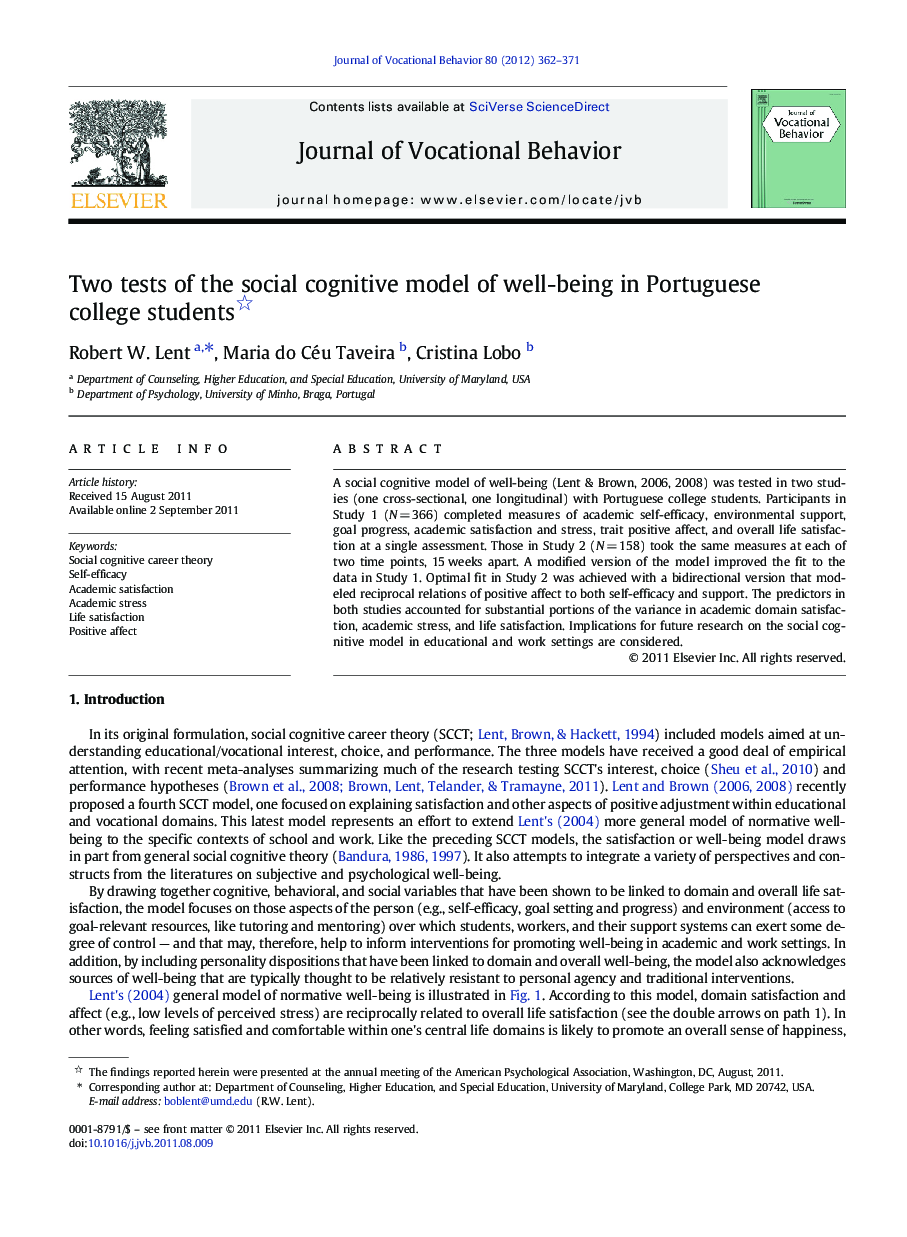| Article ID | Journal | Published Year | Pages | File Type |
|---|---|---|---|---|
| 887079 | Journal of Vocational Behavior | 2012 | 10 Pages |
A social cognitive model of well-being (Lent & Brown, 2006, 2008) was tested in two studies (one cross-sectional, one longitudinal) with Portuguese college students. Participants in Study 1 (N = 366) completed measures of academic self-efficacy, environmental support, goal progress, academic satisfaction and stress, trait positive affect, and overall life satisfaction at a single assessment. Those in Study 2 (N = 158) took the same measures at each of two time points, 15 weeks apart. A modified version of the model improved the fit to the data in Study 1. Optimal fit in Study 2 was achieved with a bidirectional version that modeled reciprocal relations of positive affect to both self-efficacy and support. The predictors in both studies accounted for substantial portions of the variance in academic domain satisfaction, academic stress, and life satisfaction. Implications for future research on the social cognitive model in educational and work settings are considered.
► Tested the social cognitive well-being model in two studies. ► A slightly modified model fit the data well in a cross-sectional study. ► A bidirectional version of the model produced good fit in a longitudinal study. ► Large amounts of the variance in well-being outcomes were explained in both studies.
